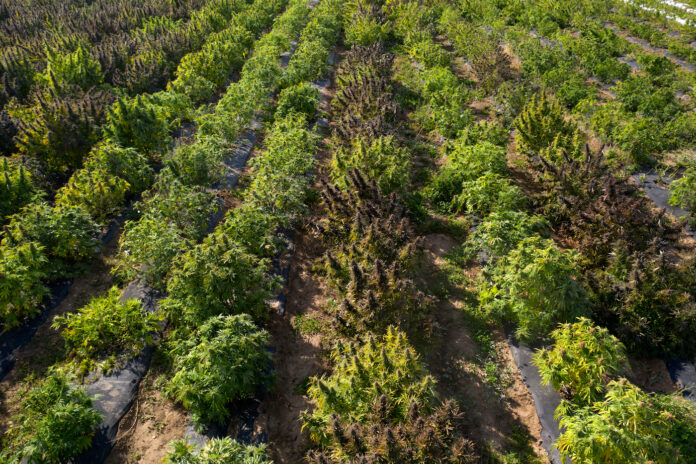For decades, the tobacco industry has been a worldwide behemoth, racking up billions of dollars in revenue and boasting marketing with a far-reaching impact on global culture and society. However, there is a new rookie in the economic market: hemp.
This newcomer rapidly has gained popularity since it was federally legalized in the United States, thanks to the 2018 Farm Bill. Now, hemp is poised to challenge the tobacco industry’s long-standing dominance.
Hemp and tobacco are both plant commodities, but they have drastically different reputations. While tobacco has been a well-established commercial crop for centuries, hemp is a rising star that has gained momentum in recent years due to the versatility of the entire plant and its potential benefits not only for the environment but also for human health.
The COVID-19 pandemic added to hemp’s popularity and shifted societal focus toward wellness, further boosting the plant’s influence. As attitudes toward sustainability and health-consciousness continue to evolve, hemp is becoming increasingly aligned with the modern world’s values regarding health and wellness.
Hemp is a versatile plant with various uses, but it often is confused with its legally differentiated relative, cannabis. While hemp is a strain of the Cannabis sativa plant, it contains less than 0.3 percent THC—the psychoactive compound responsible for the “high” associated with marijuana.
Hemp has considerable advantages over tobacco when it comes to sustainability, versatility, and potential health benefits. Some popular hemp-derived products that have gained prominence over tobacco include CBD oil, hemp cigarettes, hemp paper, and hemp clothing. CBD oil has received praise for its potential ability to relieve pain, anxiety, and inflammation, among other things.
Hemp cigarettes are becoming more popular as an alternative to traditional tobacco cigarettes due to their perceived health benefits and lack of addictive nicotine. Moreover, they are considered environmentally friendly and made from all-natural, biodegradable materials.
Meanwhile, hemp paper is becoming a popular alternative to traditional paper made from trees. It is a more sustainable crop, requires less water and nutrients to grow, and produces more paper per acre than trees. Hemp cloth is a versatile material used to make various clothing items because it is durable, lightweight, and breathable, making it a popular choice for activewear and outdoor clothing.
Despite the advantages of hemp, the tobacco industry maintains a well-established market presence due to successful lobbying efforts and cultural significance. Tobacco is a highly addictive stimulant that can harm the human body, has been legal for centuries, and predominantly is used for smoking in the form of cigarettes, cigars, or pipes. However, tobacco production and consumption have well-documented links to serious health issues including lung cancer and heart disease.
Tobacco companies have used various tactics to maintain their dominance in the market, including lobbying governmental bodies to influence legislation and targeting specific demographics—such as young adults and women—with their products. Cigarettes, in particular, have been marketed as symbols of glamor and sophistication, and this cultural legacy is part of why the tobacco industry continues to hold its ground.
While some may view investing in hemp as a risky venture, the plant’s versatility and recent legalization have sparked innovations from entrepreneurs and startups that could create potentially significant rewards. As the hemp market continues to expand and new products emerge, investors have the opportunity to take advantage of these developments.
According to a report by Grand View Research, the global hemp market size is expected to reach $15.26 billion by 2027, with a compound annual growth rate of 15.8 percent during the forecast period. The increasing demand for hemp-derived products such as CBD oil, paper, textiles, and building materials drives this growth, highlighting hemp’s growing popularity as a more sustainable, eco-friendly crop than tobacco.
Increasing public awareness of the health risks associated with tobacco consumption has led to declining sales, and governments worldwide are imposing stricter regulations on tobacco marketing and sales. Additionally, the rise of e-cigarettes and other alternatives to traditional tobacco products—and those products’ subsequent strict regulation—poses a threat to the industry’s market share.
As consumer preferences and market trends shift toward sustainability and health consciousness, hemp-derived products are becoming increasingly popular. Indeed, hemp’s versatility and potential health benefits make it a viable—perhaps even superior—alternative to traditional tobacco products.












